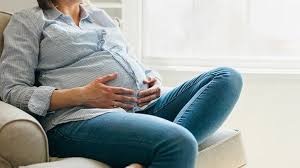Source: newcastlestar.com.au
Endometriosis affects 1 in 10 women in Australia, who experience painful and irregular periods, period pain, pain during sex and sometimes infertility due to cells similar to those that line the uterus growing in other areas within the pelvis and forming lesions.
In some women endometriosis can result in distortion of the reproductive organs which can affect a woman’s ability to conceive.
However, while there is a higher percentage of infertility in couples who have endometriosis than the general population, having endometriosis doesn’t mean you will have a fertility issue.
As for anyone, falling pregnant is the hard part. Couples are classified as infertile after unsuccessfully trying to conceive for 12 months, and this may be attributed to a number of factors including initial egg (or sperm) count, structural problems with the reproductive system, or the presence of hormonal and immune conditions.
Also, age is a major factor of a woman’s ability to conceive. Women who are seeking treatment for endometriosis after 35 who are also trying to get pregnant can be presented with the compounding issue of endometriosis at an age where natural fertility is also significantly declining.
IVF is often used as a method of conception amongst older women, as well as those with endometriosis, who haven’t become pregnant on their own. Some specialists perform laparoscopic surgery to investigate and remove the endometriosis – this can double a woman’s chance of conceiving.
Once the pregnancy is established, or past the first trimester, endometriosis doesn’t have much of an effect on pregnancy unless you are experiencing pelvic pain likely due to ovarian cysts. Some women in this position can also have problems with constipation.
While extra ultrasounds may be suggested for pregnant women who have had IVF, a diagnosis of endometriosis on its own is not a reason for extra scans during pregnancy.
Endometriosis does not affect the baby, and in the vast majority of cases endometriosis has no effect on whether the method of delivery is vaginal or by caesarean section.
How to treat endometriosis
Initial treatment for the average woman with endometriosis usually entails the use of simple analgesics (non-steroidal anti-inflammatory drugs) plus the contraceptive pill. Hormonal therapies using long-acting reversible contraceptives containing progesterone (such as mirena, implanon or depo-provera) can also reduce symptoms. Obviously contraceptive medications prevent pregnancy, so this is not a recommended treatment for those trying to conceive.
Some scans can be used to detect endometriosis, however the only way to diagnosis the condition is through a surgical procedure called a laparoscopy – where the endometriosis can be removed at the same time, and damage caused by the condition repaired.
Either before or following surgery GnRH analogue medications which cause temporary menopause are used to suppress endometriosis from flourishing or returning. Once the medications wear off a woman’s normal cycle will come back, allowing conception to take place. These medications are used in IVF a lot to help the body produce more estrogen and hopefully assist with egg implantation.
- Answer provided by Sydney obstetrician and gynaecologist Dr Alastair Morris, through HealthShare, a digital company dedicated to improving the health of regional Australians. Submit questions, and find more answers, at healthshare.com.au.
You can find a specialist near you using the health tool below.
